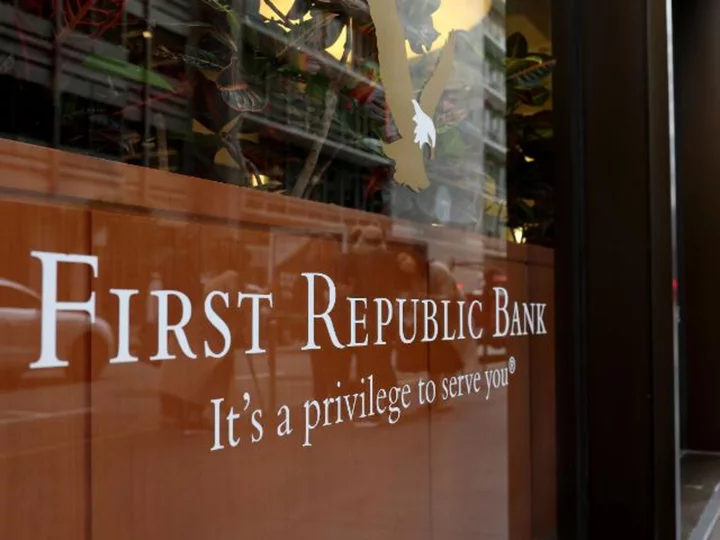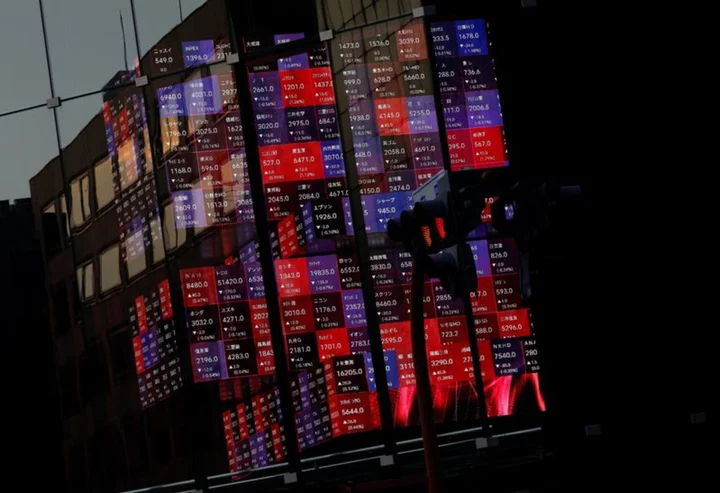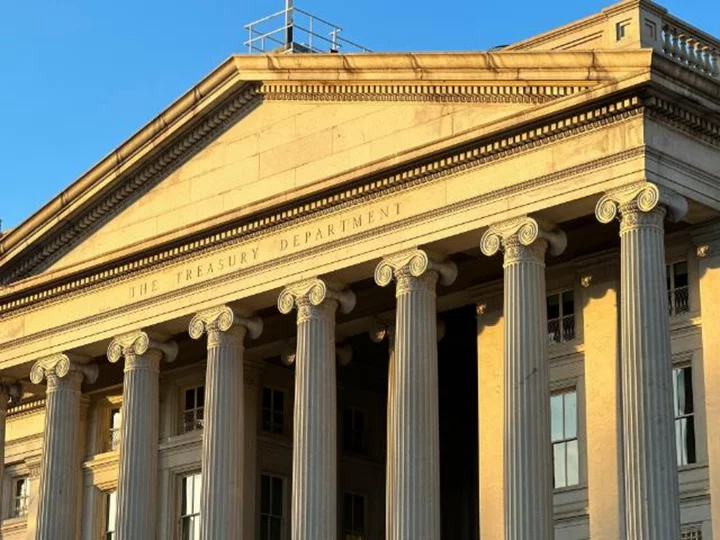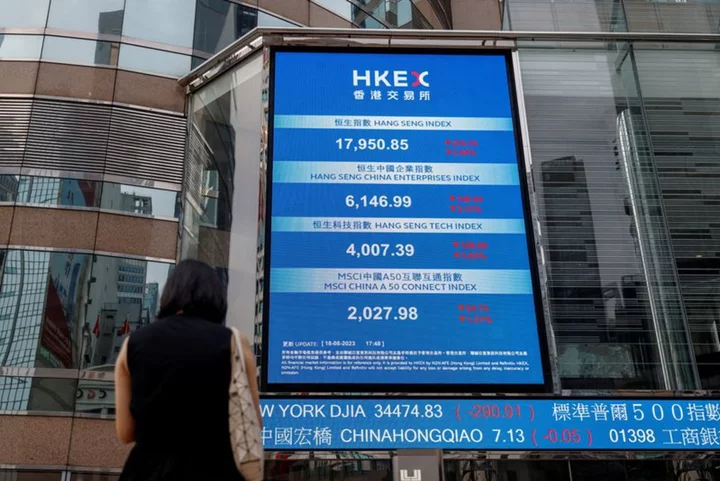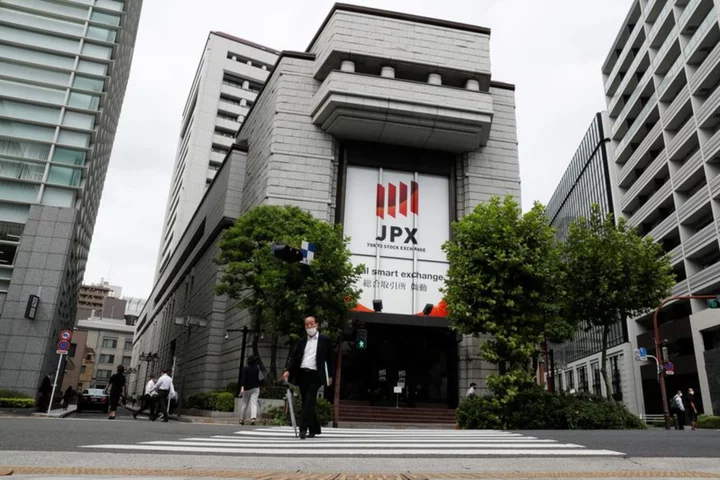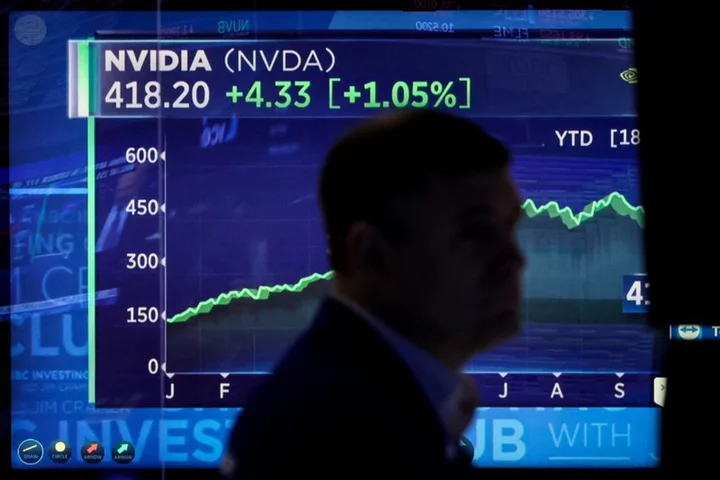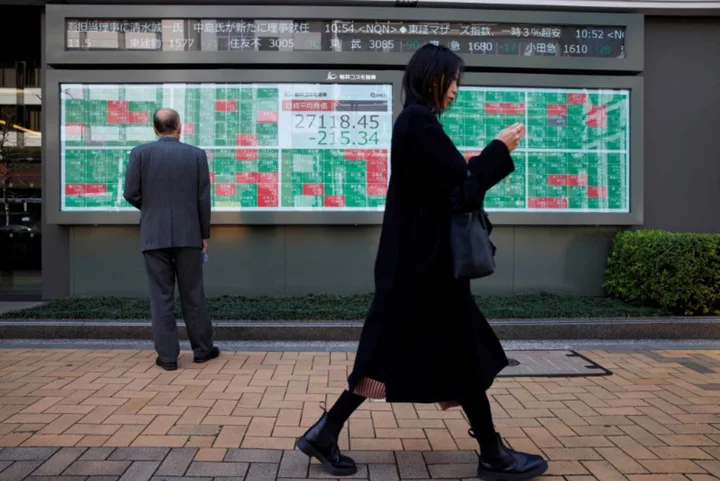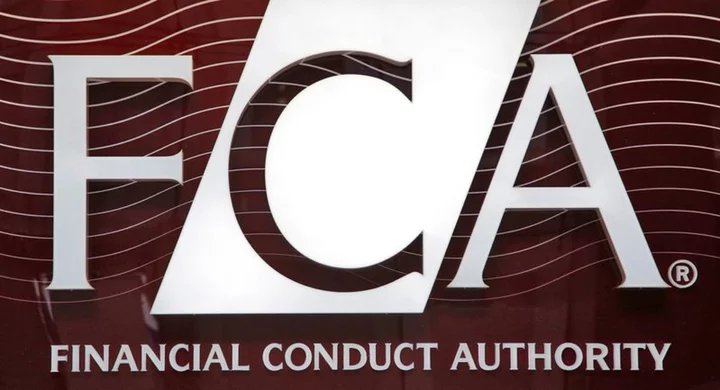Amid the US debt ceiling turmoil, a potential recession and the upcoming Fed meeting, Wall Street has a lot on its plate. Given the circumstances, it is understandable that investors may need to prioritize which emergency to address at each moment.
Even as US lawmakers race to prevent a catastrophic default, the lingering effects of the regional banking crisis have not been completely extinguished.
The failure of First Republic Bank in early May was the third collapse of a major bank this year after Silicon Valley Bank and Signature Bank. Together, the three banks represented about $559 billion in total assets. Adjusted for the effect of inflation, that's more than the $523 billion held by the 25 banks that failed in 2008.
At the beginning of May, JPMorgan Chase took over much of what was left of First Republic. CEO Jamie Dimon said that his company's emergency intervention had ended the immediate turmoil of the banking crisis. That no longer appears to be the case.
"Banking sector turmoil is contained but not over, and the impact on the economy will linger as smaller banking institutions play a key financial role," said economists at EY-Parthenon in a recent note.
Just weeks after Dimon's proclamation, US Treasury Secretary Janet Yellen told big bank executives that more mergers may be necessary as the industry continues to navigate through a crisis: Funding costs haven't come down, and exposure to the ailing commercial real estate market remains a huge threat to midsized banks.
Small banks still account for almost 70% of all commercial real estate loans outstanding.
Late last week, Fitch Ratings Service issued a warning that banks with less than $100 billion in assets are "more susceptible to deteriorating commercial real estate fundamentals than larger banks." That could lead to "ratings pressure," Fitch said, "given their higher relative exposure as a percentage of assets and total capital."
On top of that, a recent study by the Board of Governors of the Federal Reserve System used weekly confidential data from US banks to determine that there was an "unprecedented flight to safety of deposits from regional banks towards large banks in early 2023." Those moves remain substantial, according to the study, meaning smaller banks are contending with a smaller deposit base than before.
The SPDR Regional Banking ETF, which tracks a number of small and mid-sized bank stocks, is down about 3% so far this month and over 30% lower so far this year. Shares of PacWest Bancorp and Western Alliance Bancorp are down about 4% and 1.1% in May, respectively.
"Looking ahead, increased bank funding costs and deposit volatility will keep pressure on small and midsized banking institutions, leading to tighter credit conditions and lingering effects on private sector activity," said economists at EY Parthenon.
What's next: If the Federal Reserve hikes interest rates again in June, as markets are predicting, that could mean more pain for regional banks, wrote analysts at Goldman Sachs in a note on Tuesday.
The Fed raised interest rates by a quarter of a percentage point in May, raising the overnight borrowing level for banks to its highest level in 16 years. The central bank indicated it was considering a pause in June, but recent appearances by policymakers have brought that potential pause into question.
Analysts are concerned that as rates get higher, the borrowing environment becomes tougher for regional banks, hurting their ability to lend.
Debt ceiling deal clears a big hurdle
The US debt limit deal, negotiated by President Joe Biden and Republican House Speaker Kevin McCarthy this past weekend, cleared a key hurdle late Tuesday evening: The powerful House Rules Committee voted 7-6 to advance the debt ceiling bill to the floor.
Investors breathed a sigh of relief after the bill cleared the Committee: Some of the bill's loudest conservative critics are members of the panel.
The timeframe to get the bill passed through both chambers of Congress and signed into law is extremely tight. Lawmakers are racing the clock to avert a catastrophic default ahead of June 5, the day the Treasury Department has said it will no longer be able to pay all of the nation's obligations in full and on time, report my CNN Politics colleagues.
If all goes well, the full House could vote on the bill as soon as Wednesday. The Senate could then vote on the bill as early as Thursday, placing it on President Biden's desk before the weekend.
Oil prices fall
US oil prices dropped below $70 a barrel Tuesday as debt ceiling concerns and reports of tensions between Saudi Arabia and Russia ahead of a key OPEC+ meeting roiled markets.
The price of crude settled at its lowest prices in nearly four weeks, reports my colleague Matt Egan. It ended the day down 4.4% at $69.46 a barrel. Oil fell further Wednesday as weak China manufacturing data further stoked fears about demand.
Tuesday's selloff marks one of the worst days of the year for the oil market and could help keep a lid on pump prices. The national average for a gallon of regular gasoline is down by about $1 from a year ago.
Also undermining prices are new questions about the relationship between OPEC leader Saudi Arabia and Russia ahead of this weekend's meeting of oil producers in Vienna.
Saudi Arabia has expressed anger to Russia for failing to follow through on Moscow's promise to cut production in response to Western sanctions, the Wall Street Journal reported, citing sources.

